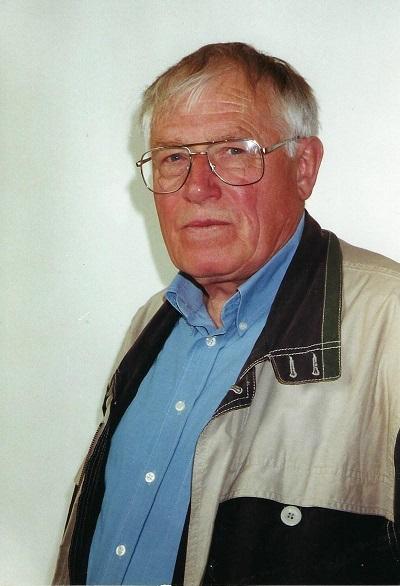Read more:
† 26. November 2011 in
Nationality at birth: Deutsch
Nationality at death: Deutsch
Place of the fight for human rights: Bochum (Nordrhein Westfalen)
Klaus Kunold wurde durch seine persönliche Geschichte und die Verfolgungen während des Nazi-Regimes geprägt, sein Engagement wurde durch seine politische Einstellung bestärkt.
Prohibition of torture or cruel, inhuman treatment
Asylum
Freedom of expression
Freedom of assembly and association
Right to truth

INTRODUCTION
Klaus Kunold (1931-2011) joined the Free German Youth in 1950, at twenty he joined the German Communist Party. For him they were the most consistent organizations in the fight for social justice, for peace and against fascism. In 1968 he was a founding member of the German Communist Party (DKP). Klaus Kunold was concerned with “reparation” for those persecuted as Jews, for forced laborers and the Sinti and Roma. In 2008 he was awarded the Medal of Honor of the City of Bochum for his anti-fascist commitment”.
THE STORY
Klaus Kunold, Bochum (Germany)
Antifascist, trade unionist, humanist and communist
Klaus Kunold was born on 12 December 1931 in Bochum as the first of three children.
Even as a child he had to witness how his father, Karl Kunold, a member of the KPD, was arrested by the Gestapo in August 1933 and taken to the Oranienburg concentration camp. Likewise, his mother was arrested in 1933 and had to face a 14-month prison sentence in Krefeld-Anrath prison from February 1934.
At the age of seven years, Klaus Kunold stood in front of the burning Bochum synagogue, stunned. He experienced the beginning of the Second World War just under a year later, together with his cousin Dieter Wahl and his grandmother “Julchen” Krollmann, in East Prussia, where they were on holiday at the time. Via detours he returned to Bochum with his grandmother and his cousin.
In Bochum, Klaus Kunold has seen how prisoners of war and forced labourers were driven to work. At the beginning of 1945 he was accommodated with his mother, father and younger brother at a farmer in Volmarstein together with Polish and Ukrainian forced labourers. Their house in Bochum had burned down. His little sister Jutta was born in Volmarstein in March 1945. Three days after the birth of his sister Jutta, his only cousin took his own life. He must have experienced atrocities during the war. He confided to his uncle Karl that he had deserted. Karl Kunold’s promise to hide him does not seem to have been a viable option for him.
Klaus Kunold has witnessed how, after the liberation of Bochum by the Americans, the surviving anti-fascists were full of optimism to rebuild the destroyed city and to give the people work and hope. His father Karl Kunold was one of the first KPD councillors in Bochum.
At Easter 1946 Klaus Kunold was dismissed from the elementary school. He started an apprenticeship in a gardening company with pot and vegetable plants, which he successfully closed after three years. Afterwards he worked as a gardener’s assistant, but lost this job because of his political views. Klaus Kunold had joined the FDJ at the age of nineteen and the KPD at twenty – his consequence of what he had to experience as a child and adolescent.
He met Margret Stürmann from Bremen at a political seminar in 1952 in Thuringia in the former GDR. They married on 26 November 1954.
In 1951 the FDJ was banned in West Germany. Klaus Kunold worked full-time for the FDJ in Bochum and Essen and participated in the preparations for the III. World Youth Festival, which took place in East Berlin in August. He was arrested on 24 July 1953 because of his activities for the banned FDJ. After his release from pre-trial detention one day before his 22nd birthday “the accused appeared again in late spring 1954 in the context of the forbidden FDJ activity. Until his renewed arrest on March 14, 1955, he conducted a youth chorus in Bochum, which was controlled and directed by the FDJ.” (Court verdict from August 20, 1962)
In August 1956 Klaus and Margret Kunold’s daughter Elke was born and in May 1958 their son Ulrich. They lived in a one-room apartment in Bochum. Klaus Kunold earned his living at a construction company and at Bochumer Verein, where his father also worked.
On August 17, 1956, the Federal Constitutional Court pronounced the verdict banning the KPD. Eleven years after the end of fascism, the Communist Party was again banned in Germany and its members suffered reprisals, while former Nazi greats were able to regain a foothold in business, politics and justice. The ban of the KPD was something unique for a parliamentary democracy in Europe.
Because Klaus and Margret Kunold remained true to their political views and because they worked, among other things, for a “conspiratorial literature distribution apparatus” (Court verdict of August 20, 1962) of the KPD, they were again charged in May 1960 and November 1961 respectively.The discovery of numerous communist and left-wing extremist books and brochures during a search and the distribution of leaflets were apparently sufficient to accuse them of endangering the state. Margret Kunold was sentenced to a six-month suspended prison term.
A few months after the birth of her third child Dieter, Klaus Kunold started his last imprisonment.
After his release from prison, Klaus Kunold was very lucky to find work together with other communists in a medium-sized family business supplying the steel industry. The humanistic attitude of the businessman and the fact that “the old man” (Der Alte) could rely on his communist workers were the basis for a long lasting cooperation. Klaus Kunold followed his father in this company as chairman of the works council: he was involved in the IG Metall trade union, with the Friends of Nature and at Easter every year he took part with his wife and children in the marches through the Ruhr area for peace, against rearmament and the war in Vietnam.
In 1968 Klaus Kunold was one of the founding members of the DKP in Bochum.The Ostpolitik of Willi Brandt, the first social democratic chancellor after 1945, was welcomed by him and brought hope for détente and rapprochement between the blocs and the two German states. It was all the more tragic that it was precisely at this time that teachers were examined for their loyalty to the constitution by a decision of the so-called Ministerial Conference and that not only DKP members were banned from working – including children of resistance fighters against war and fascism.
In 1985 Klaus Kunold became chairman of the “Vereinigung der Verfolgten des Naziregimes – Bund der Antifaschisten” in Bochum, to which he had already belonged since 1955. He remained in this function until his death. He was involved in the large peace marches in the 1980s and stood up for the politically persecuted. He was concerned with “making restitution” for Jewish fellow citizens, the rights of forced laborers during the Second World War, and the rights of Sinti and Roma. He was concerned “with respect for their hardships, their tortures, and to remember again and again that many, innumerable many, were murdered. (W. Dominik/M.Walz in AMOS 4-2011) He was interested in the exact remembrance for a better future. In 1993, on the initiative of Klaus Kunold, the brochure Die Verfolgung der Juden in Bochum und Wattenscheid, die Jahre 1933-1945 in Berichte, Bilder und Dokumente.
An important task for him was to win young people for the actions against the NPD and other neo-Nazi forces. He was one of the organizers of the anti-fascist state conference and campaigned for the closure of the NPD state headquarters in Wattenscheid.
Another task for him was to research persecution and resistance in Bochum during the Nazi era. He saw this task as necessary because the number of the still living persecuted who could still give information as contemporary witnesses was getting smaller and smaller. Klaus Kunold organized the first anti-fascist city tours and often conducted them himself until his death.In 1994 he was one of the initiators and founding members of the association “Erinnern für die Zukunft e. V.” (Remembering for the Future), whose aim was, among other things, to get the city of Bochum to invite survivors of the old Jewish community to visit Bochum. In 1995 for the first time 51 members of the old Jewish community returned to their old home town from which they had to flee during fascism in order to survive. In addition to his work in this association and his guided tours to places of National Socialist city history, where he communicated history both vividly and realistically, he was committed to a place of remembrance for former forced laborers and prisoners of war. At the beginning of 2012, a few months after his death, a memorial was inaugurated on the grounds of the former camp of Bochumer Verein.
For his services to the victims of National Socialism and against right-wing violence, Klaus Kunold was awarded the Medal of Honor of the City of Bochum by the then incumbent Lord Mayor Dr. Ottilie Scholz on 30 May 2008 after three attempts at the request of the parliamentary group DIE GRÜNEN in the Bochum city council.
Klaus Kunold died on 26 November 2011 in Bochum, shortly before his 80th birthday. On the occasion of his 70th birthday, a brochure entitled “Repression und aufrechter Gang” (“Repression and upright walk”) was published, which reminds us of the persecution to which Klaus Kunold was subjected during the governing period of the Adenauer CDU.
Authers: Volker Gerwers und Dieter Kunold






